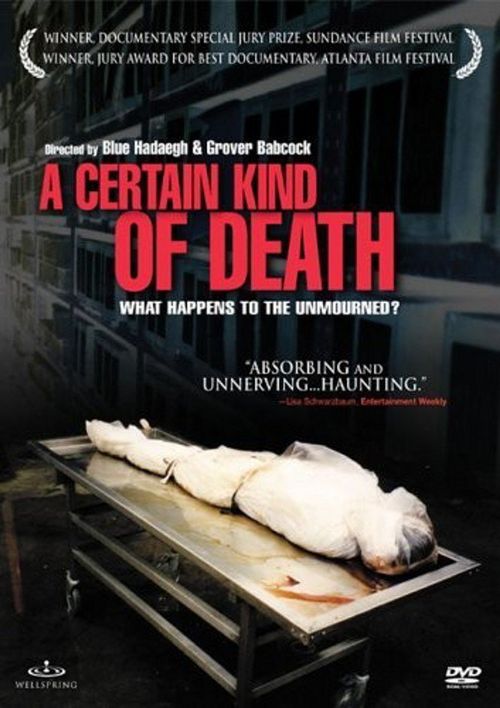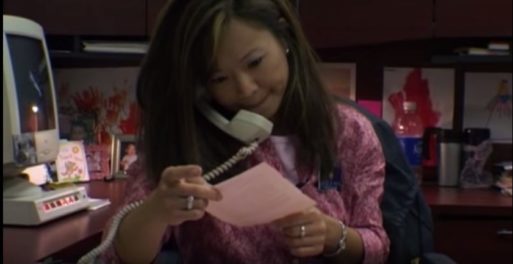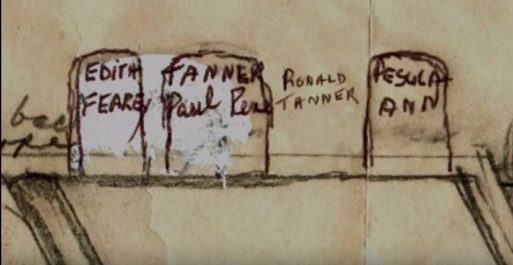 What happens when someone dies, and no one is around to claim the body? Directors Grover Babcock and Blue Hadaegh answer this question in their documentary “A Certain Kind of Death.” They walk us through a day in the life of those who handle these bodies, taking a clinical, step-by-step approach.
What happens when someone dies, and no one is around to claim the body? Directors Grover Babcock and Blue Hadaegh answer this question in their documentary “A Certain Kind of Death.” They walk us through a day in the life of those who handle these bodies, taking a clinical, step-by-step approach.
Warning: This film contains real footage of people who have died. Some of these scenes feature bodies in states of extreme decay, and none of them are censored. “A Certain Kind of Death” might not be appropriate for viewers who are sensitive to these kinds of images.
Although some of the scenes in the movie are hard to stomach, it’s this dedication to showing bodies exactly as they are that sets this film apart from many others in the genre. The directors hide nothing from the audience, allowing viewers to see with their own eyes what investigators, coroners, and crematorium technicians deal with every day. They’re not trying to make the bodies beautiful or sugar- coat the process. By the end of the film, you’ll walk away with a greater understanding and appreciation for those who dedicate their careers to identifying those who have died alone.
In the film, we follow three cases: a man who died from a mysterious illness, a man who fell in the bathroom of a hotel, and a man who died alone in his tiny apartment. In all three cases, investigators have to determine how and why the person died. More importantly, they have to figure out who to call to claim the remains. They’re often in a race against the clock. They only have a few short months to find the next of kin before they’re forced to cremate the body. Later, should no one come to claim the cremains, they must bury them in an unmarked grave.
The California coroner’s office depicted in the film deals with an estimated 500 cases like this every year. Sometimes, the person outlives every blood relative and friend he has, and dies without anyone to claim the inheritance. In other cases, people have lost contact with their loved ones, often as a result of substance abuse or mental illness. It’s up to special investigators to put the puzzle together.

Credit: YouTube.com
An investigator calls leads on a missing next of kin case.
It’s incredible how much time and effort goes into these investigations, and how much the investigators do to locate the next of kin. They go through every piece of paper in a home, hoping to find just one scribbled phone number or birth certificate. They call neighbors, landlords, and anyone else who might have had contact with the person who died, however brief that contact was. When they finally get a lead, they chase it until they find the next of kin or they reach a dead end.
You can see the frustration in many of the investigators’ eyes when a lead turns up nothing. They become heavily invested in many of these cases. We find out why later in the film: If they can’t find the next of kin, they’re forced to process the bodies unceremoniously.
Once the investigation has been utterly exhausted, those without next of kin and with no will are sent to a crematorium. They are cremated and placed in marked boxes for up to two years. If, by the end of two years, no one comes to claim them, the ashes are dumped into a single mass grave and buried. The grave is marked only by the year that the people buried there died.
You can tell that investigators view this as a last resort, but even with their best efforts, this is often the end result. Without a will, Advance Directive or next of kin to guide them, the state resorts to a default burial.
After watching this film, you’ll fully realize the importance of Wills and Advance Directives. One of the men who died didn’t have any living next of kin, but because he put together all of his documents and wishes on a table before he died, he was able to get a proper embalming and burial. We watch as he evolves from an unidentified man lying dead on his living room floor into a complete human being. Through his documents, investigators learn about his past as a theater actor, his relationship to his partner (who died years earlier of complications from AIDS) and his desire to be buried next to his family.

Credit: YouTube.com
Investigators used this sketch found on the man’s table to determine where he wanted to be buried.
This man clearly never expected to die alone, but he did. Without his detailed documents, he easily could have become just another pile of ash in an unmarked grave. His foresight gave him back his humanity in death.

 “A Certain Kind of Death” by Grover Babcock and Blue Hadaegh
“A Certain Kind of Death” by Grover Babcock and Blue Hadaegh


 John Mulaney’s “Funeral Planning” on Netflix: No Real Plan
John Mulaney’s “Funeral Planning” on Netflix: No Real Plan

 Composting Bodies Is Now Legal in a Dozen States
Composting Bodies Is Now Legal in a Dozen States














